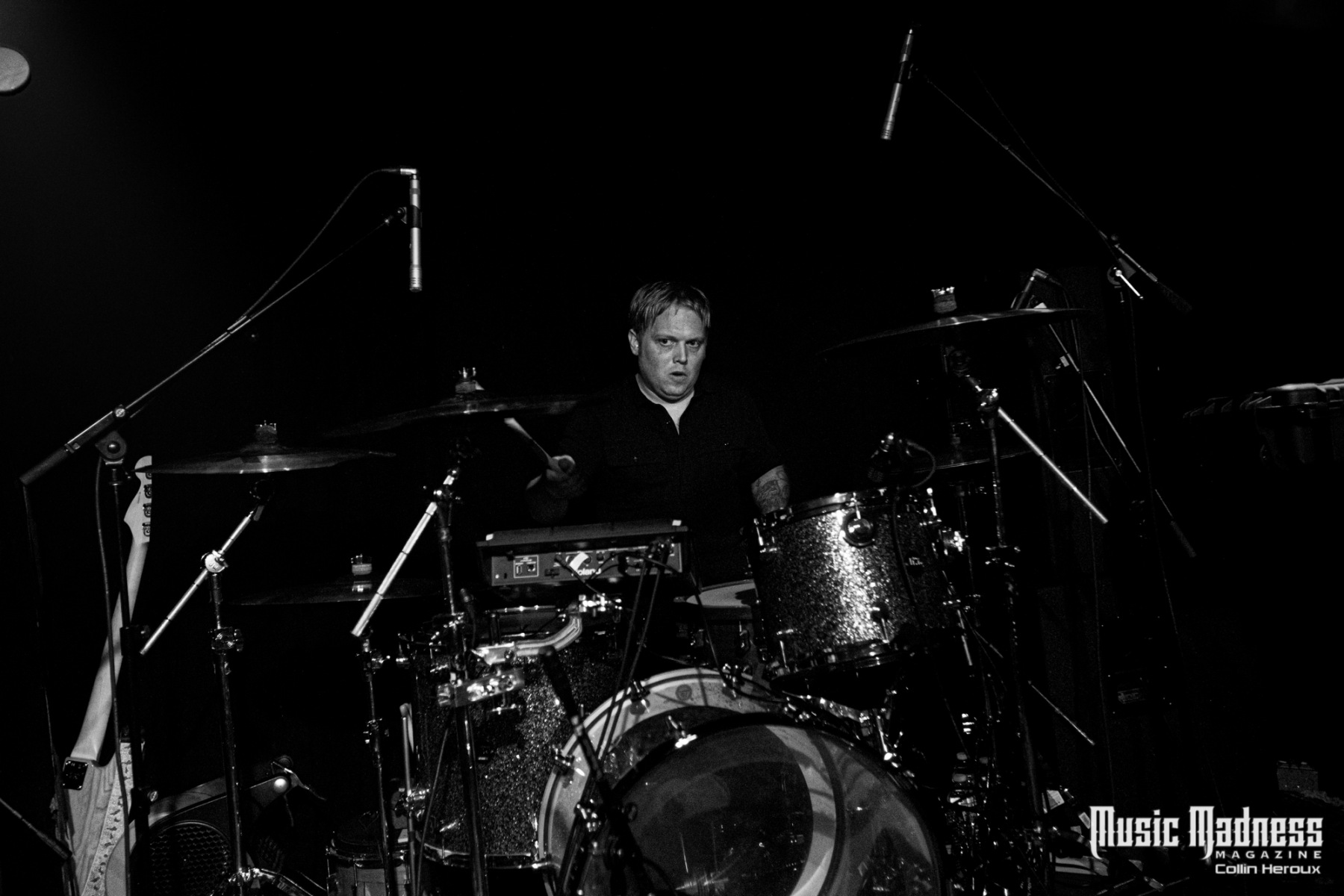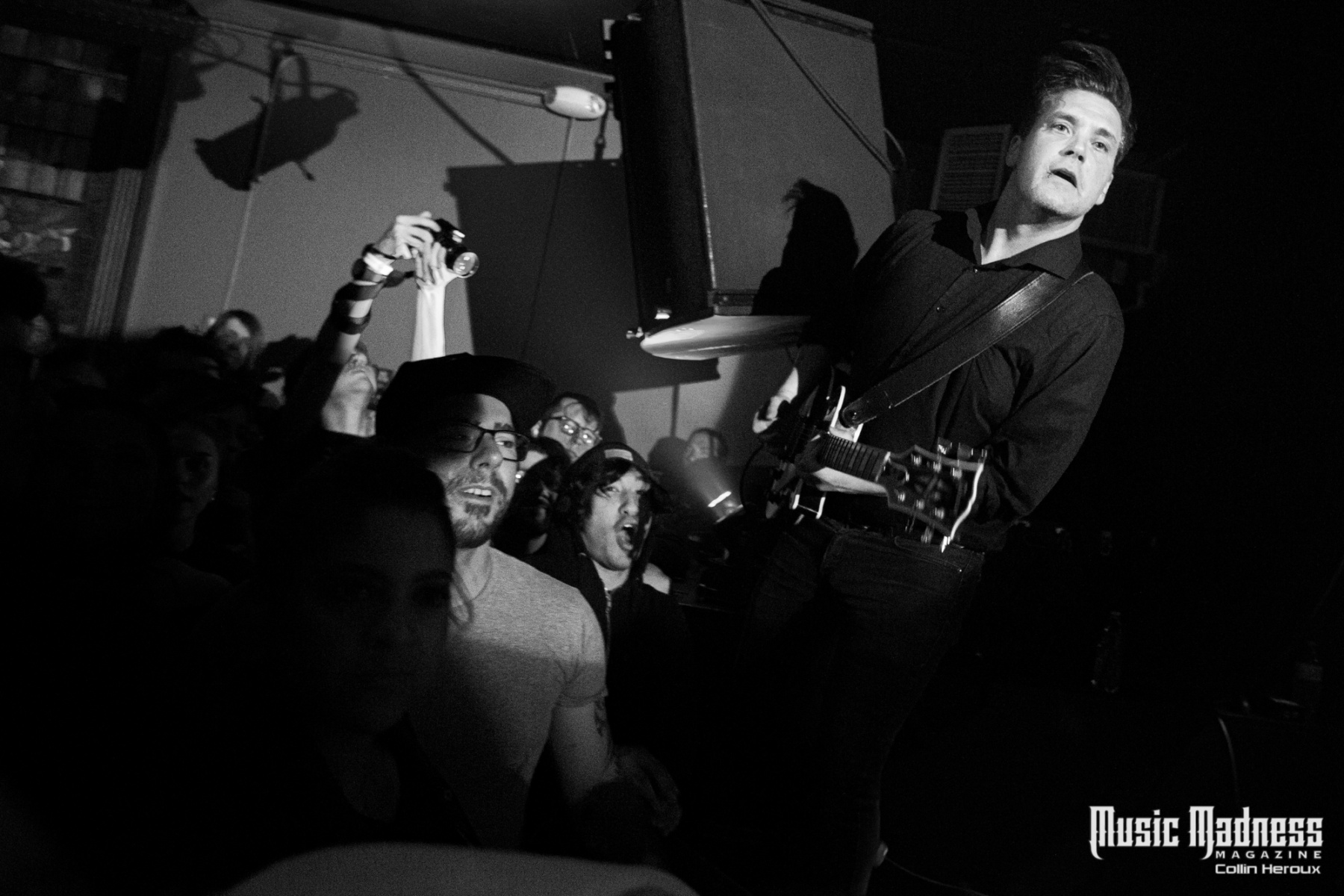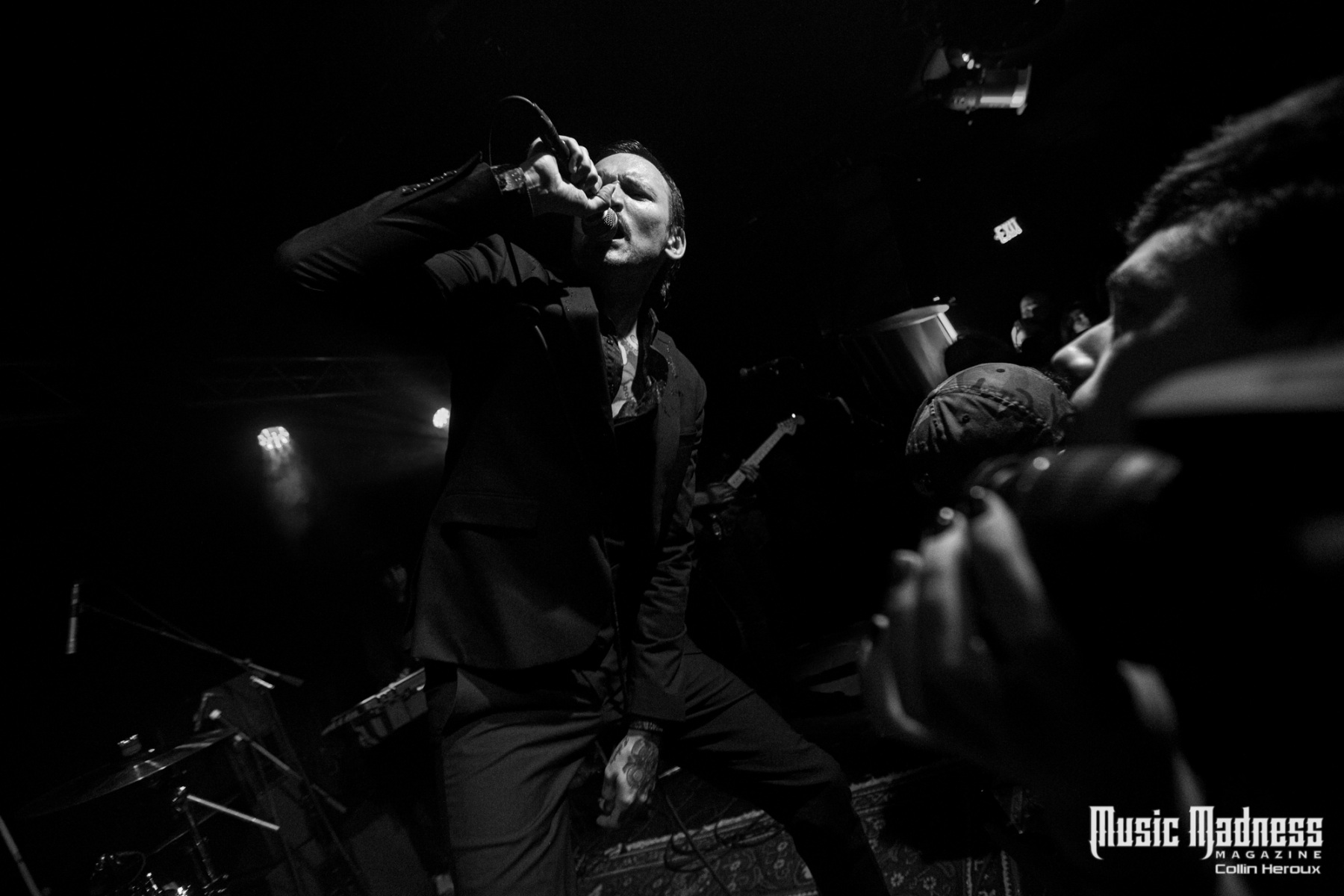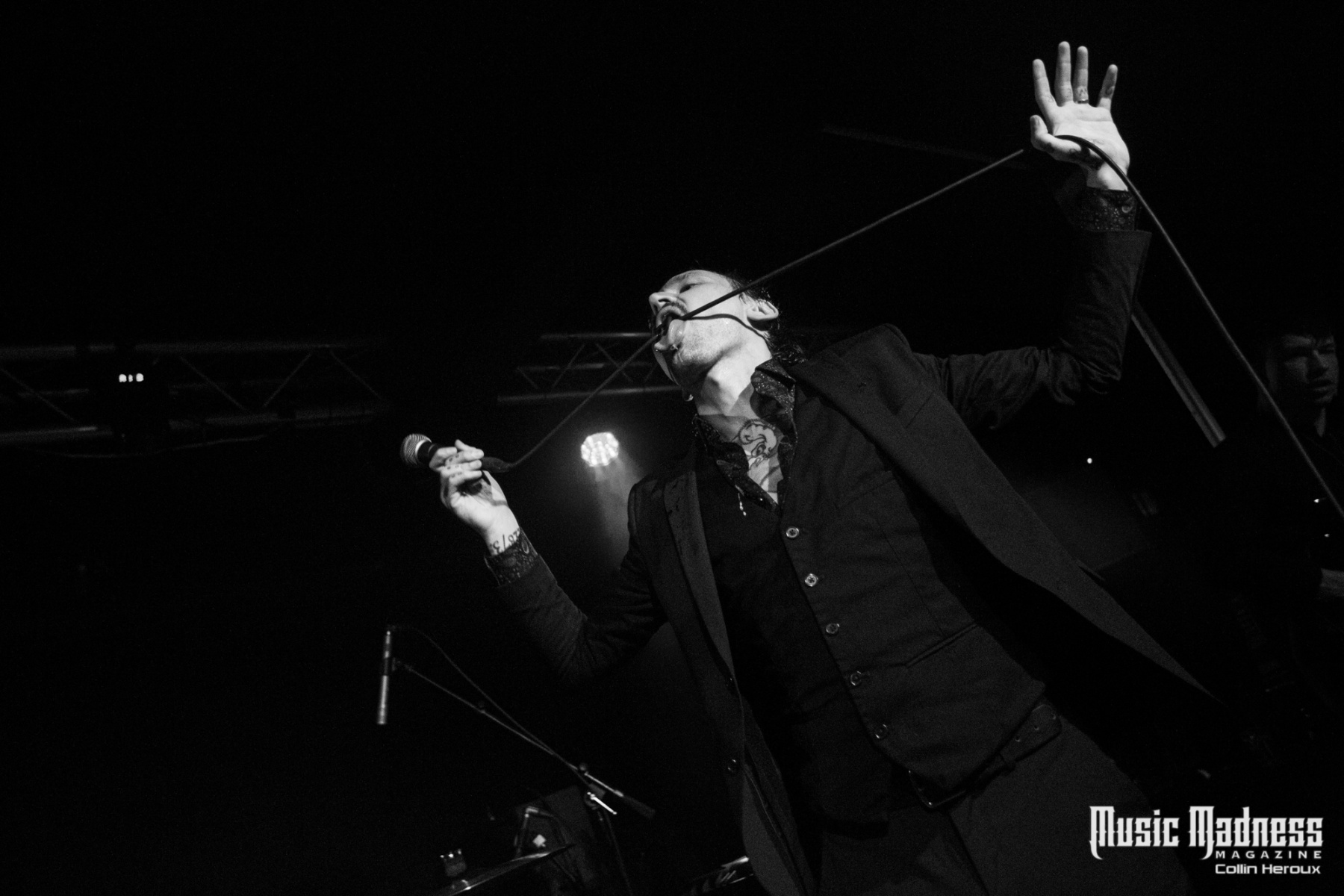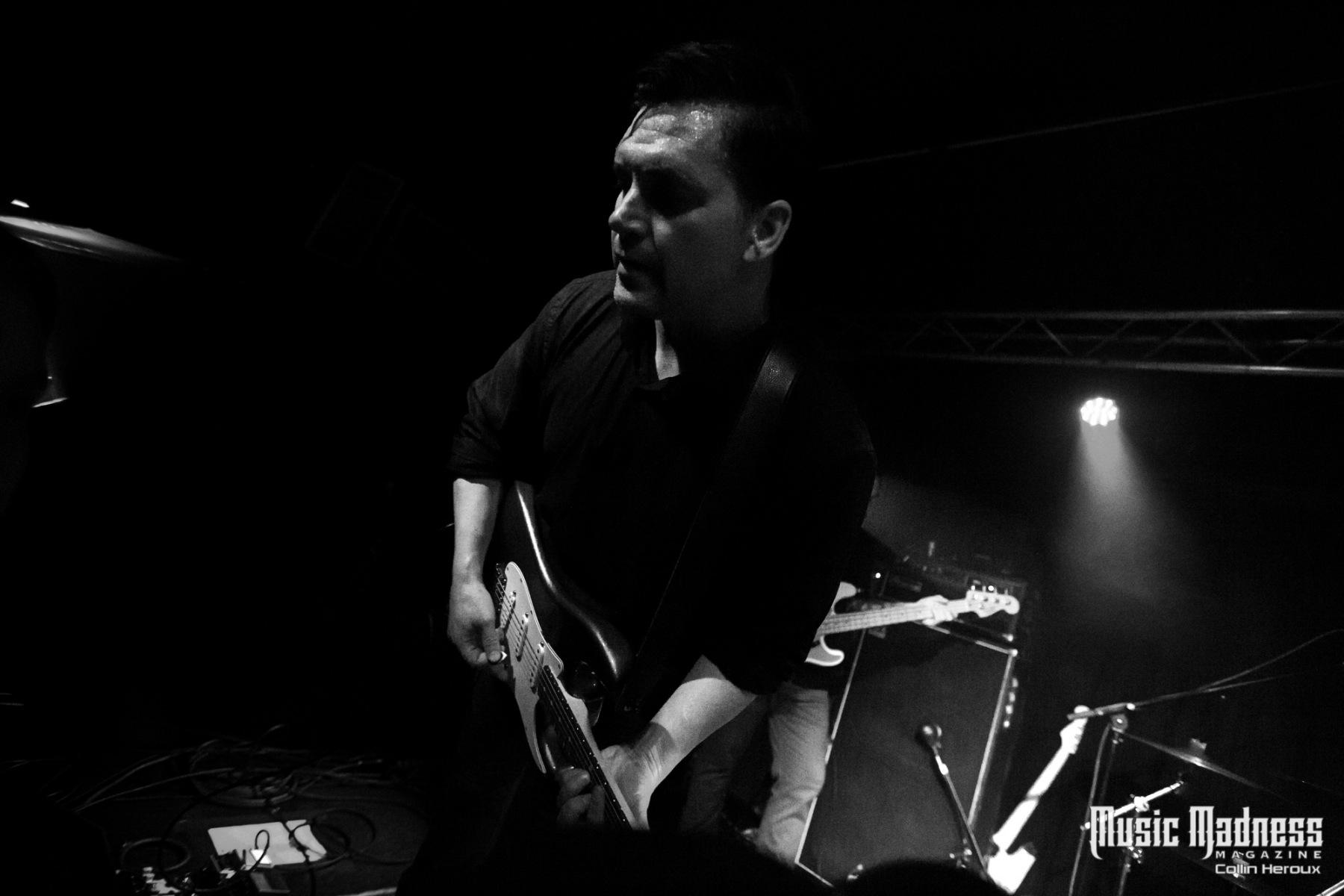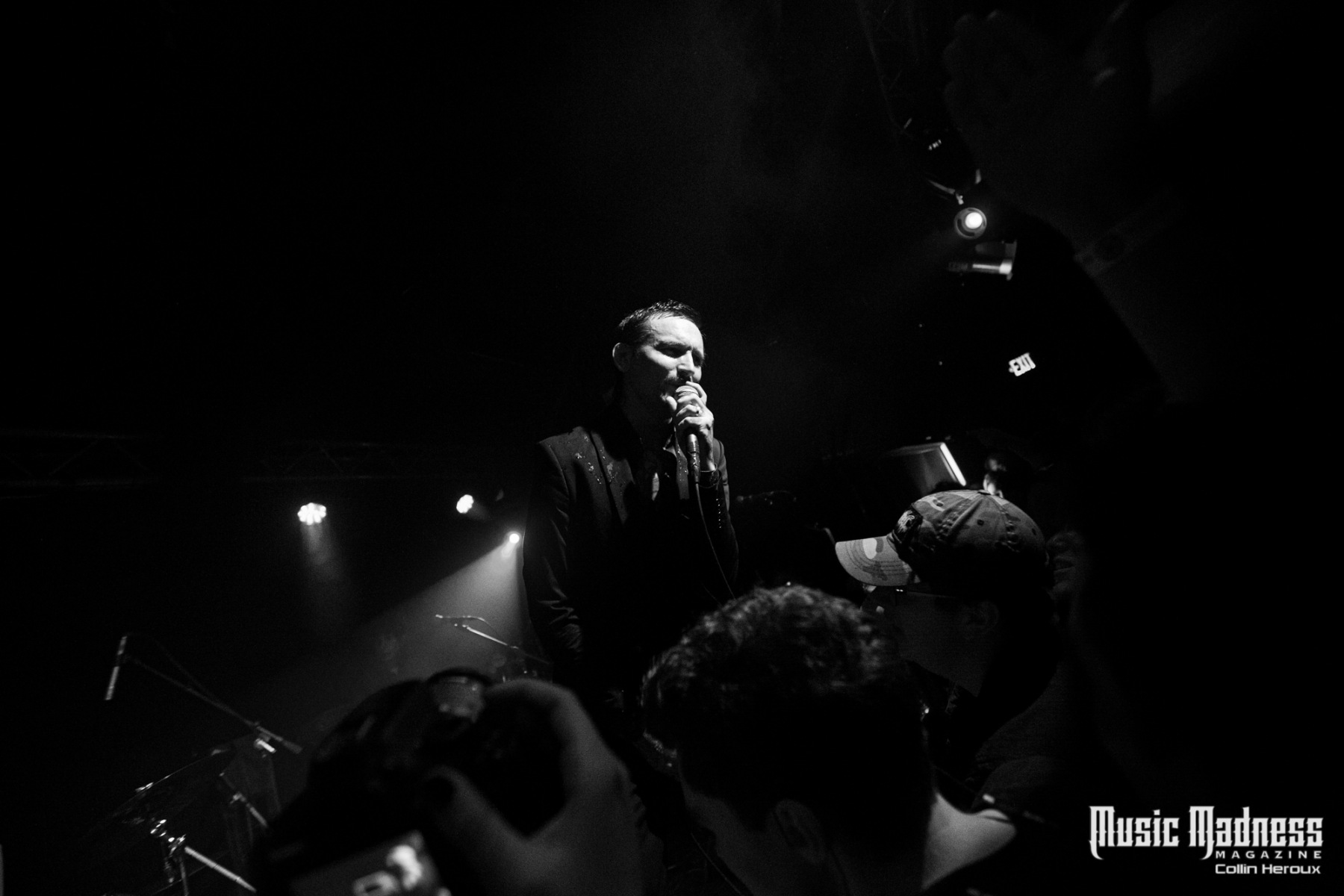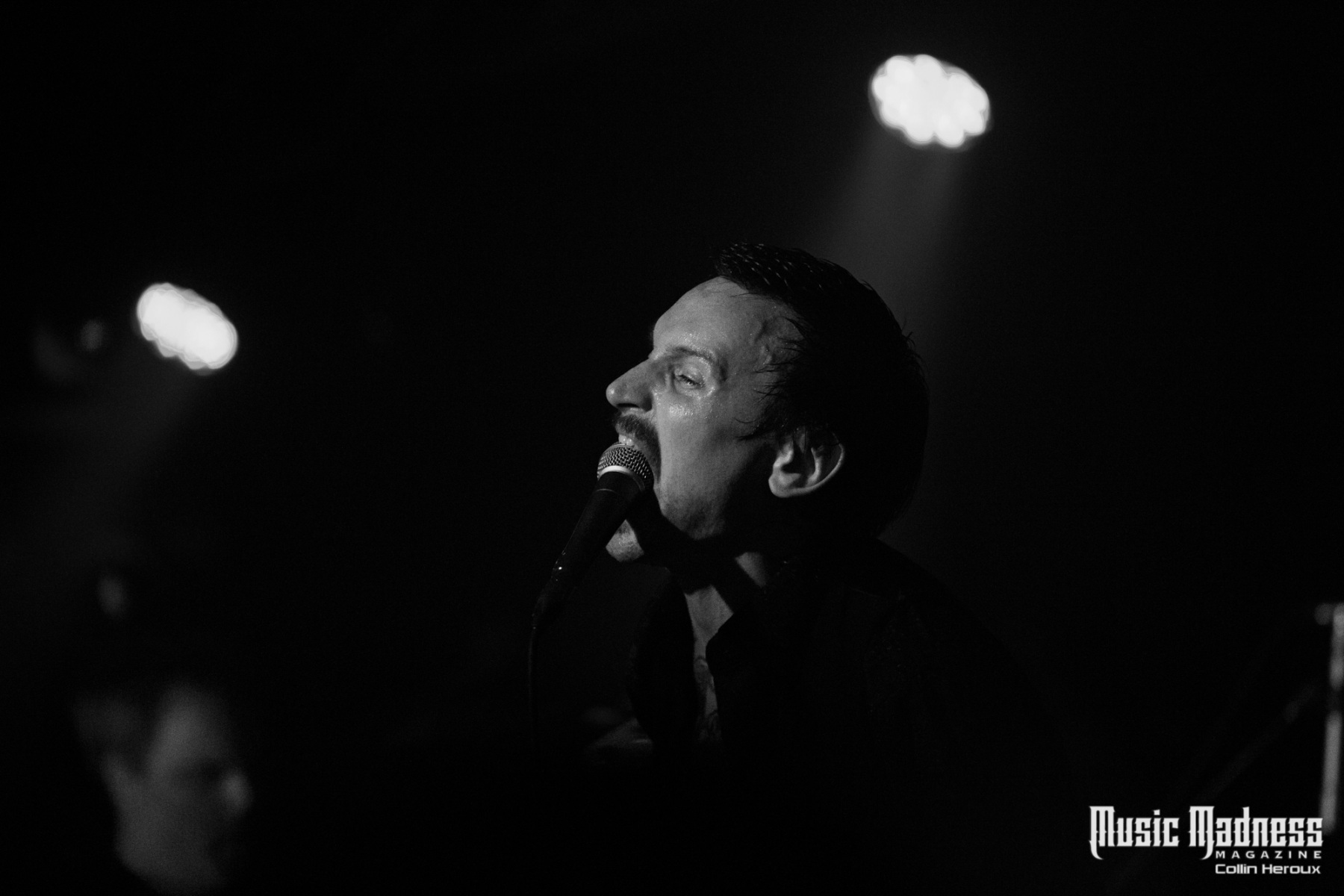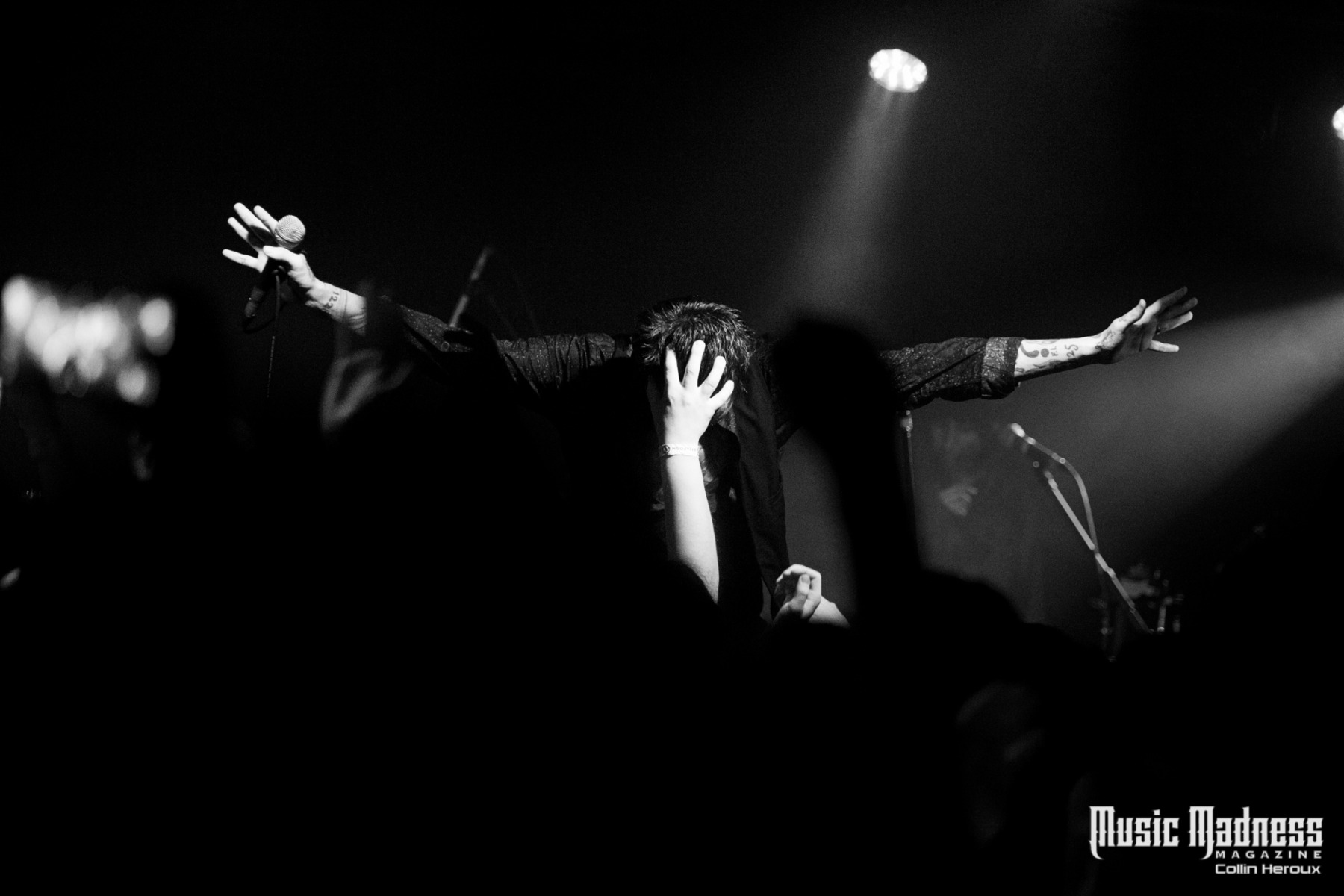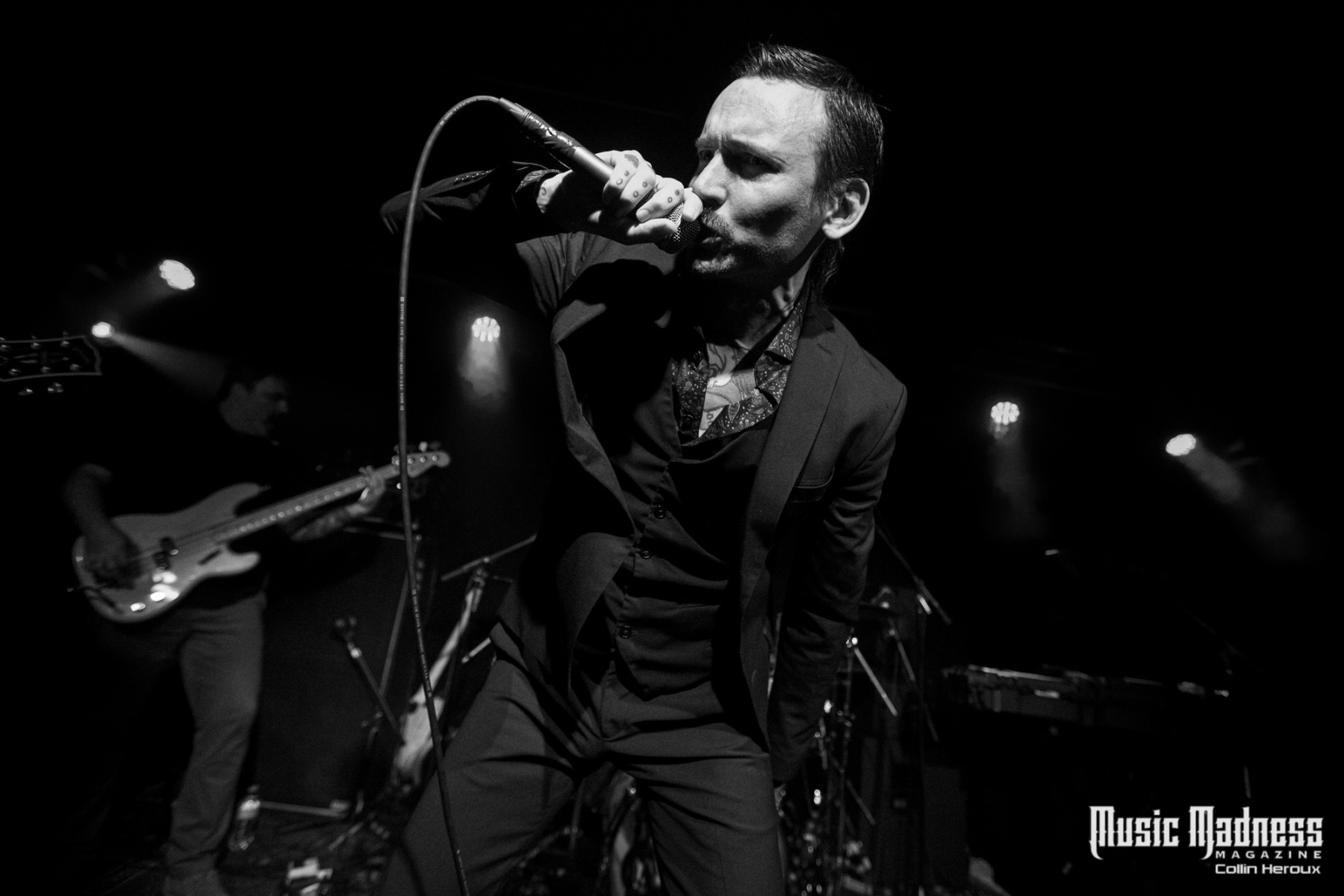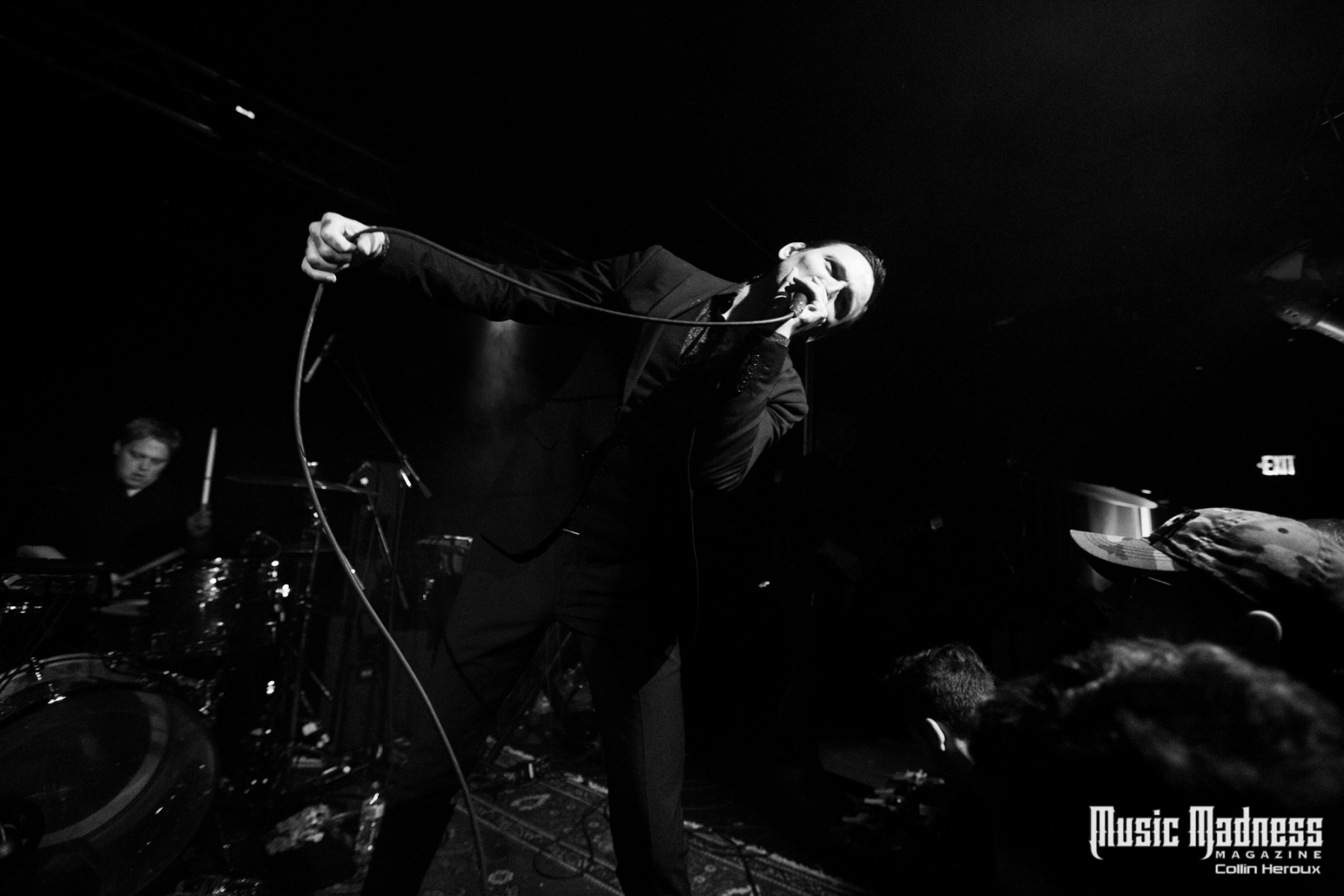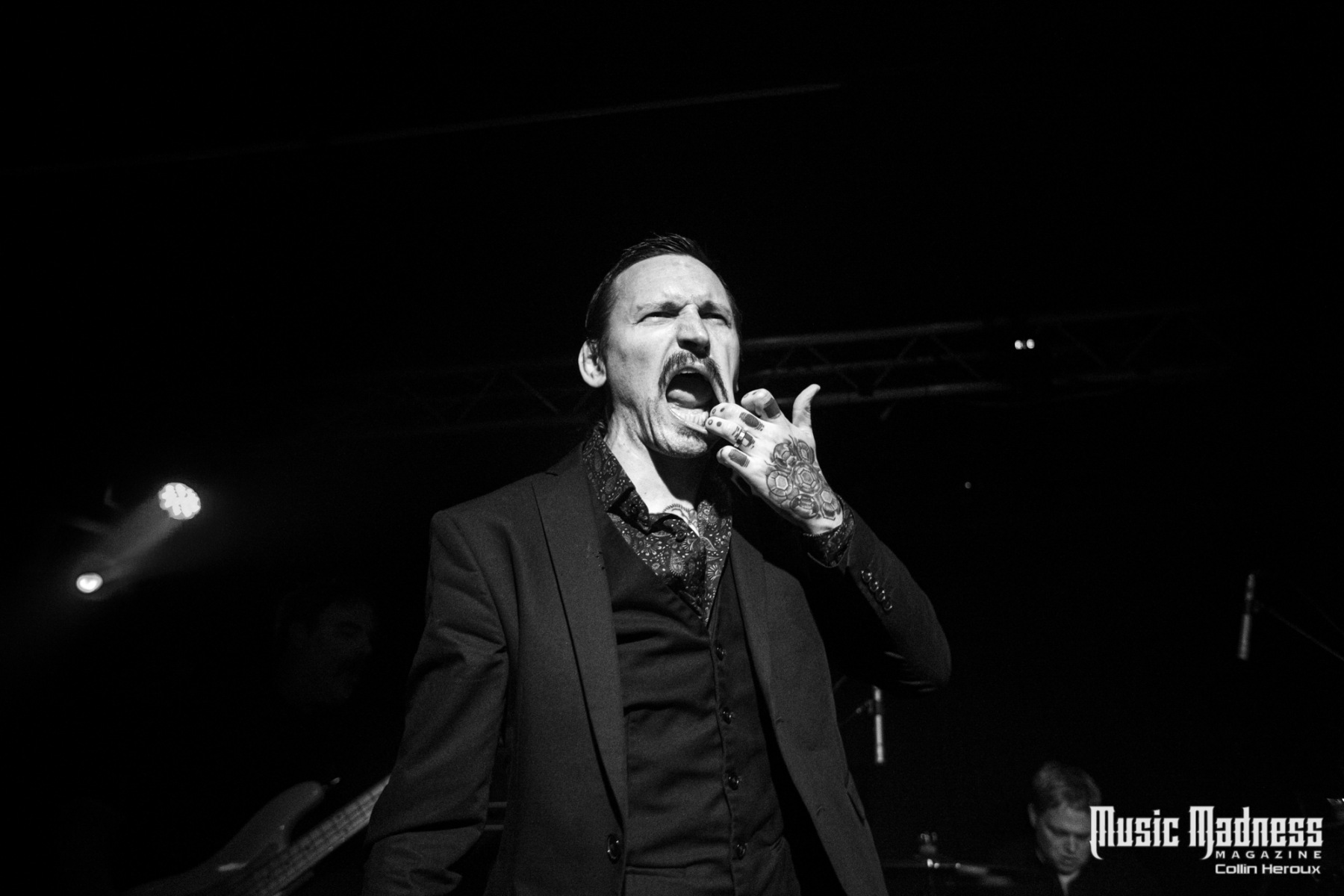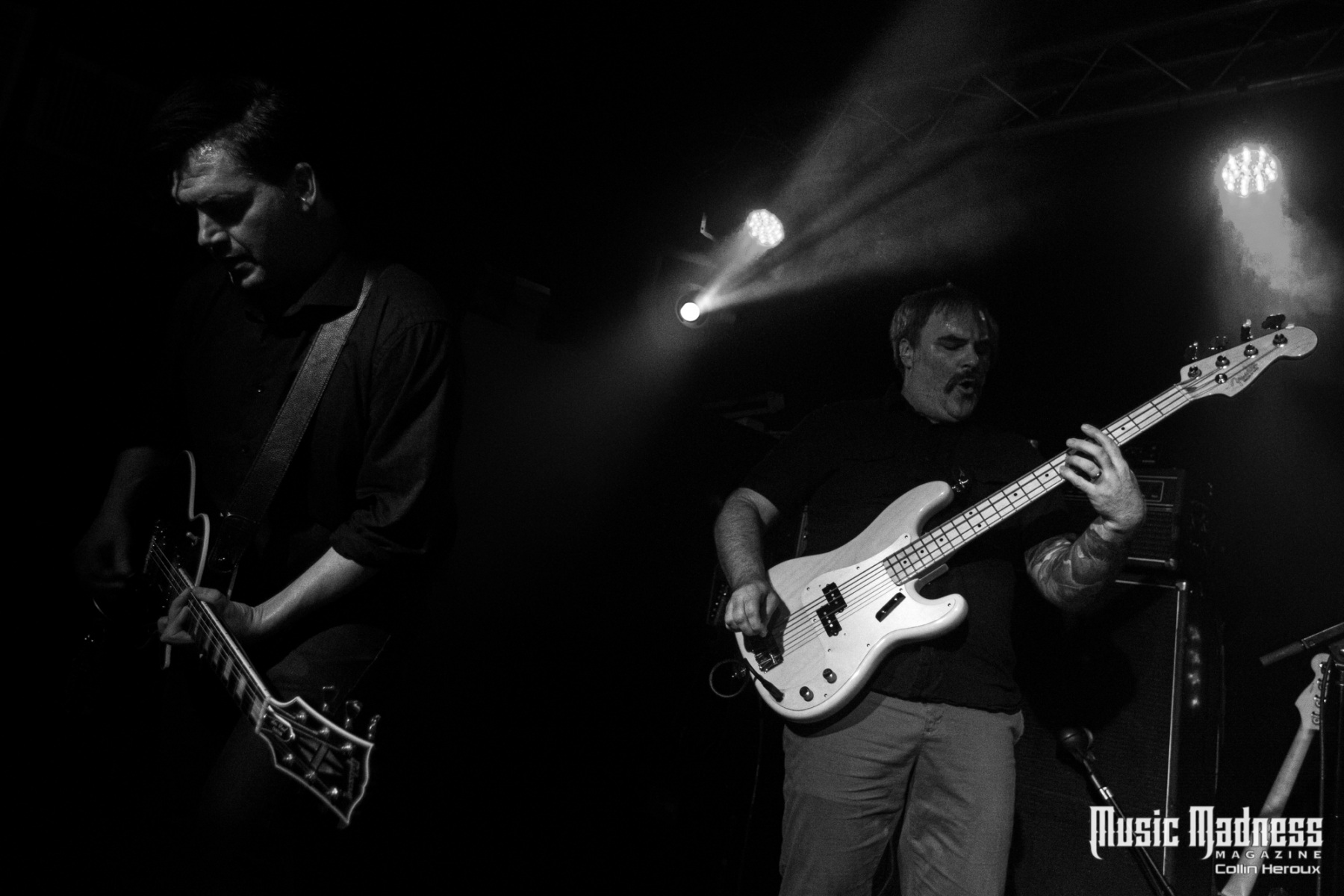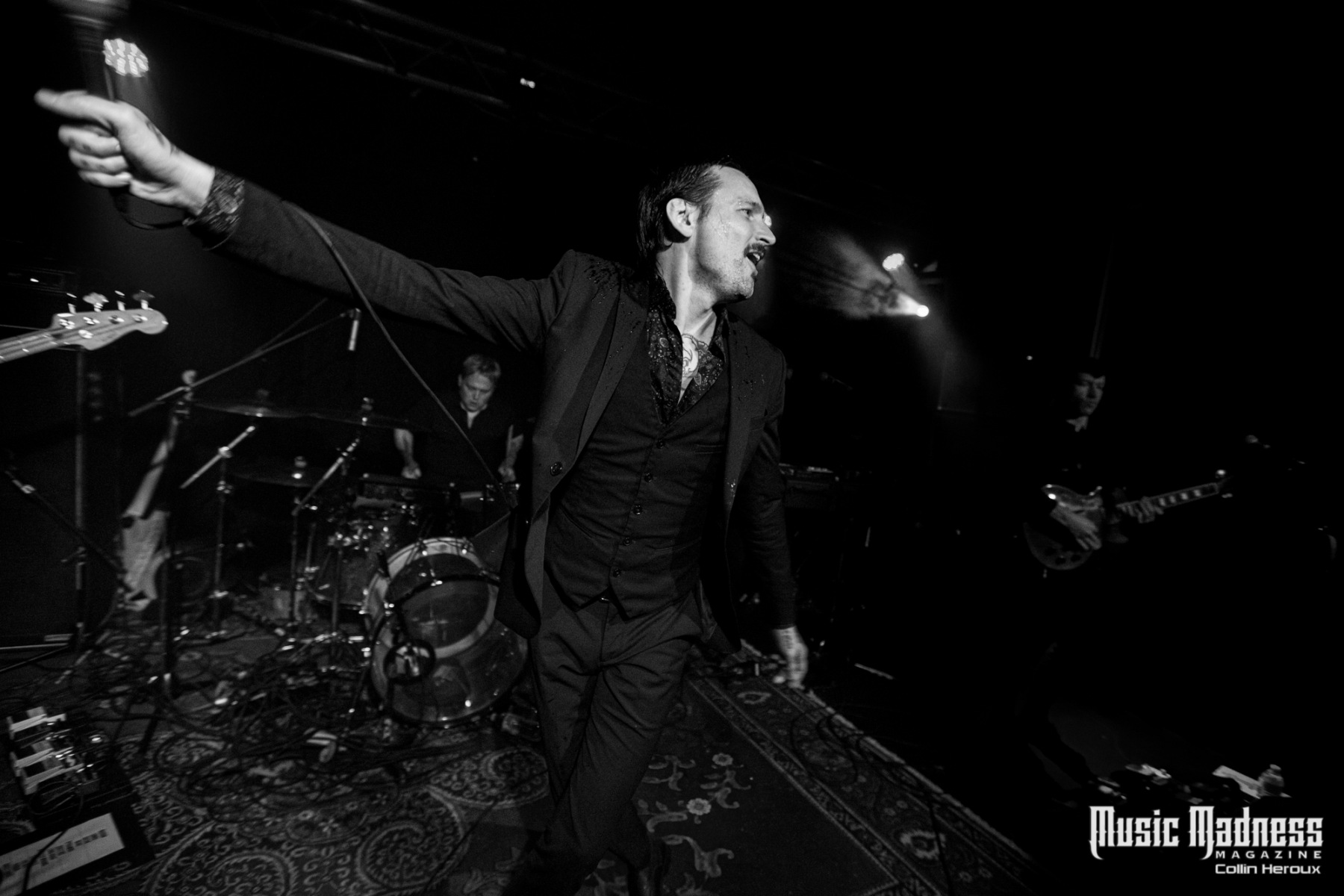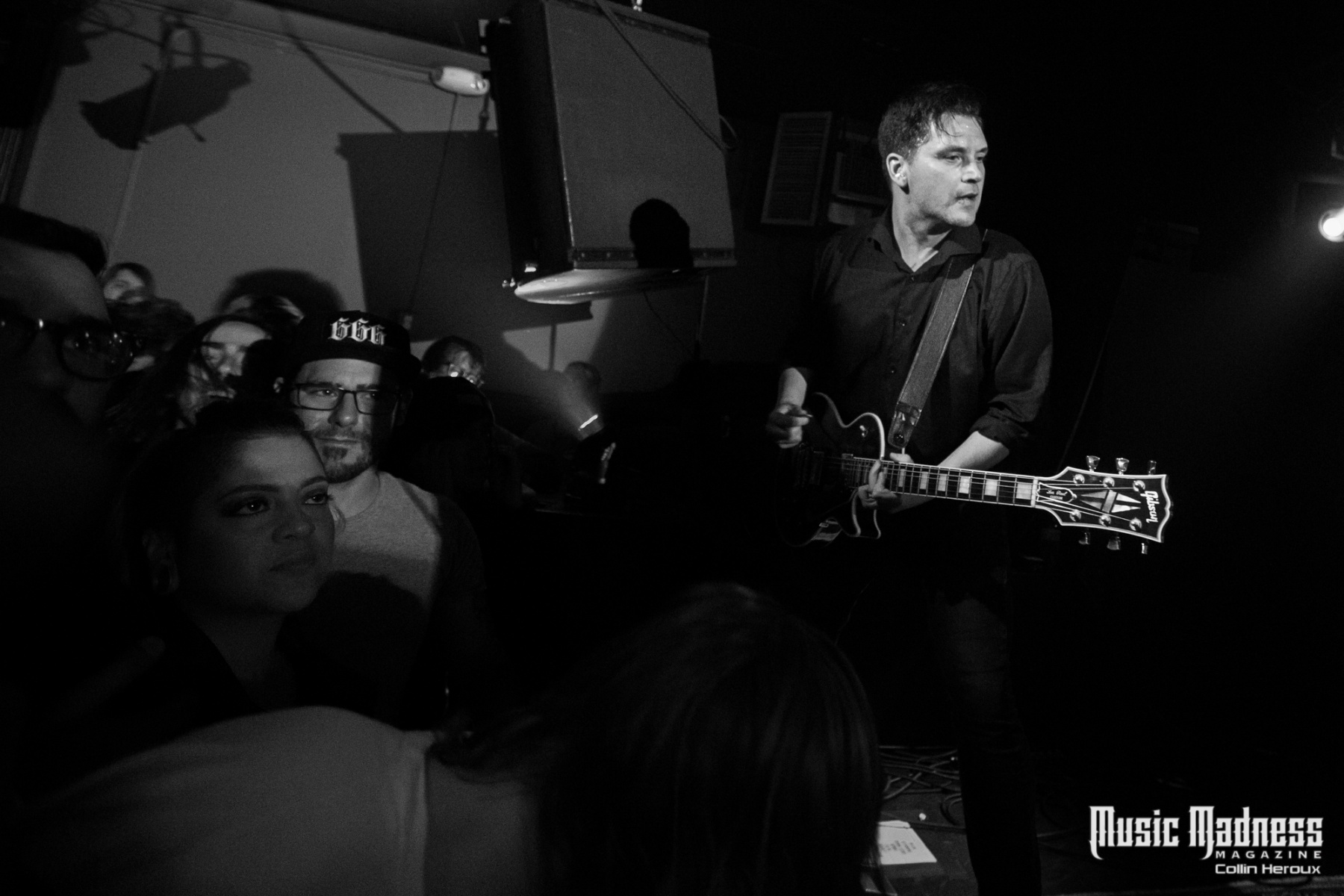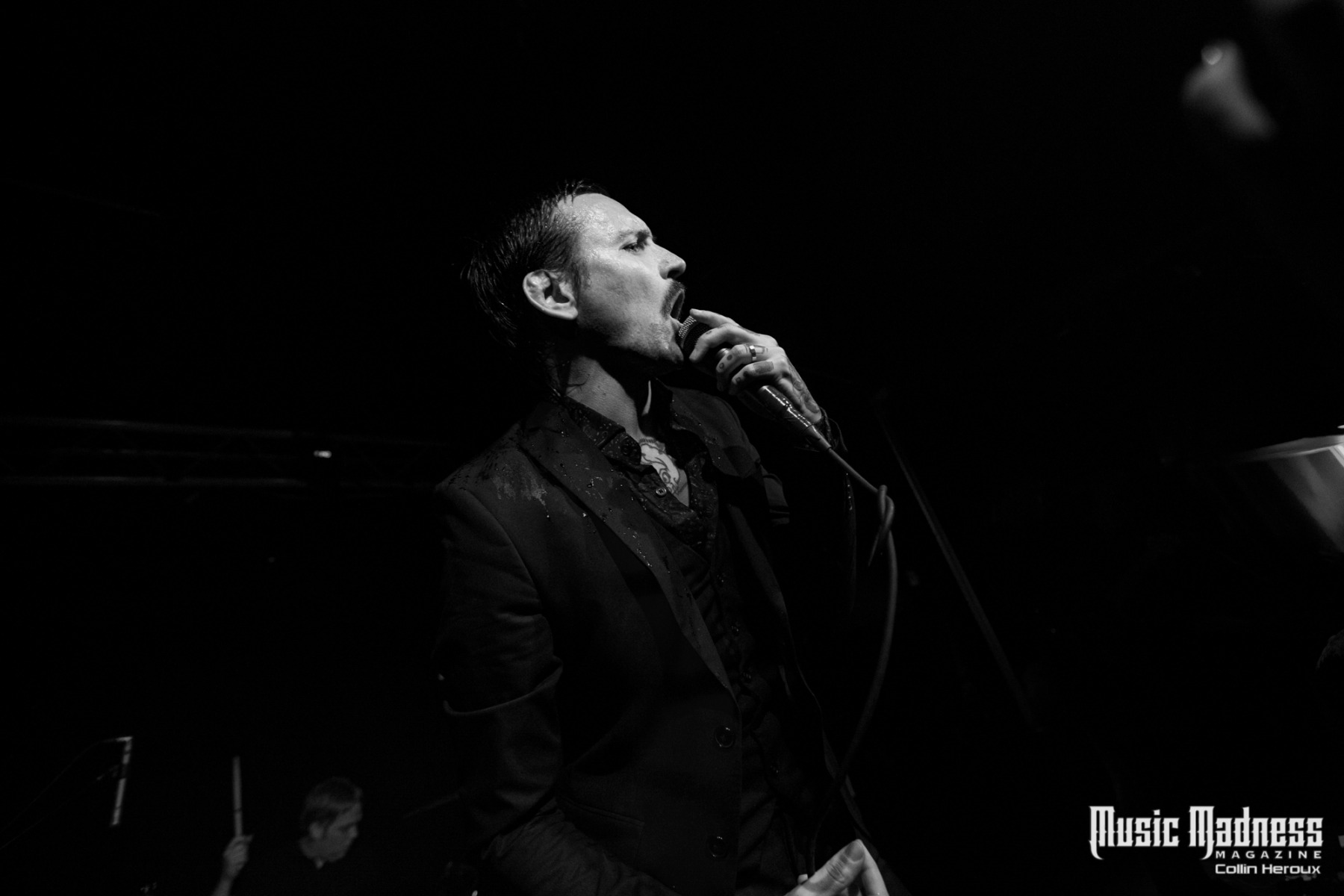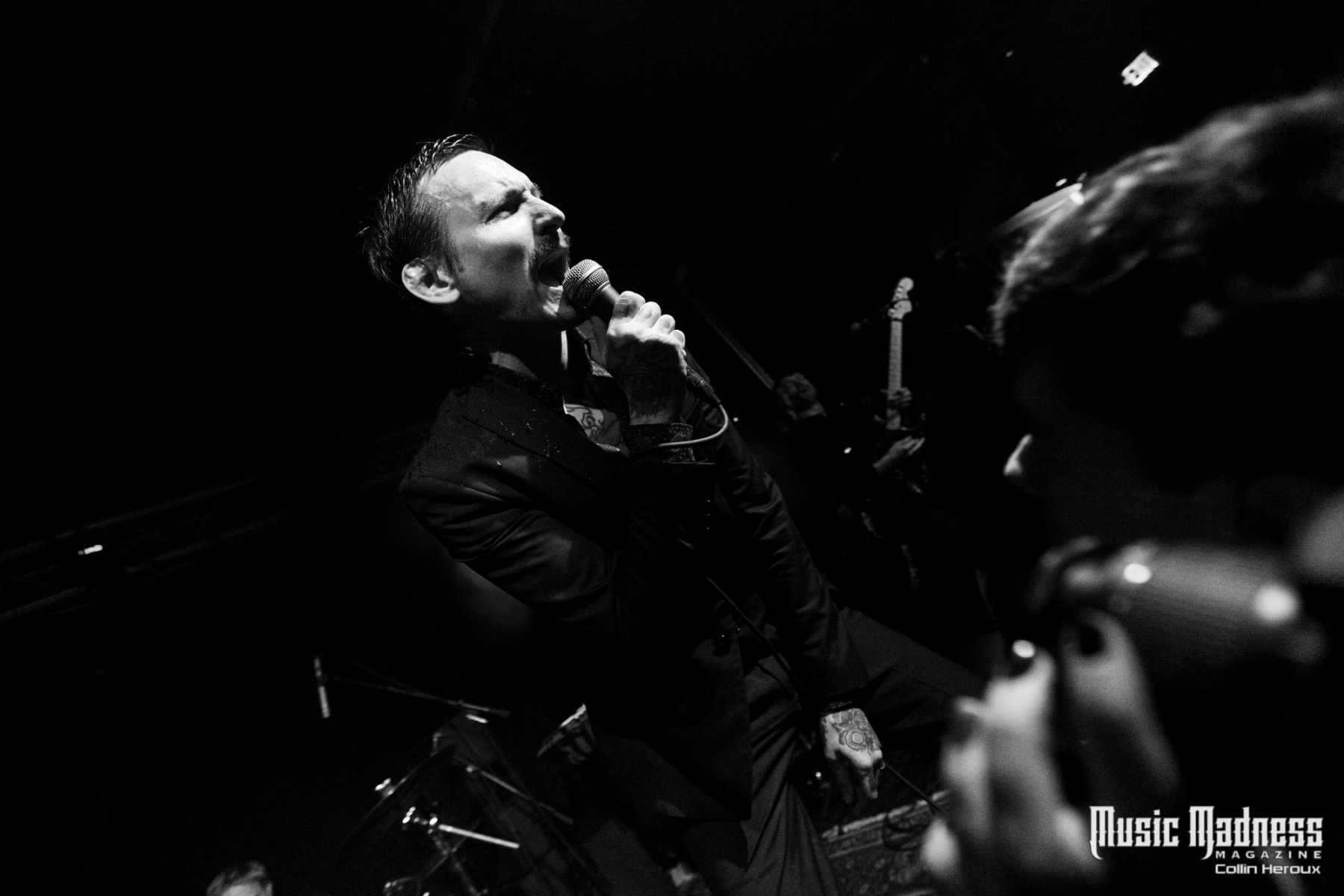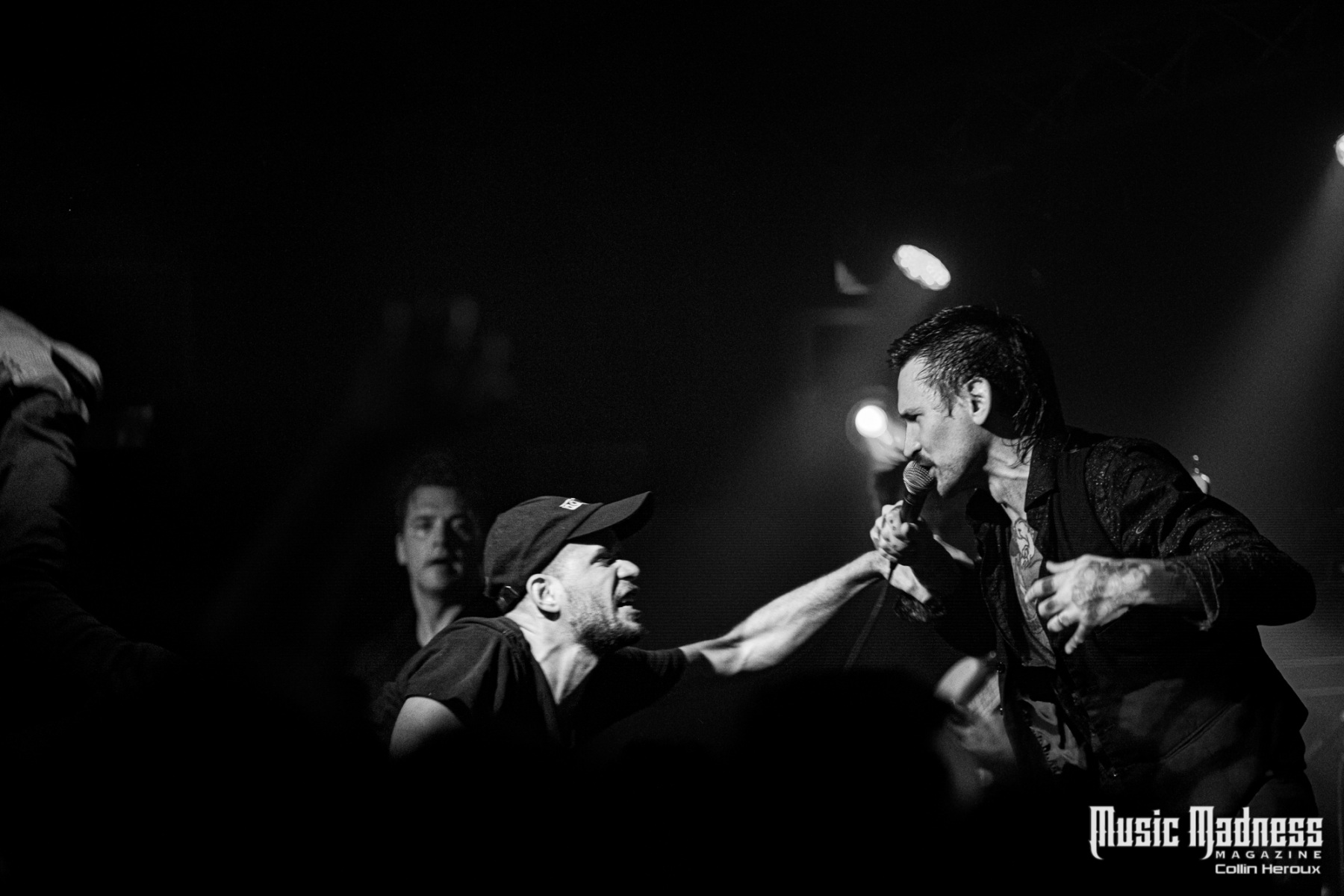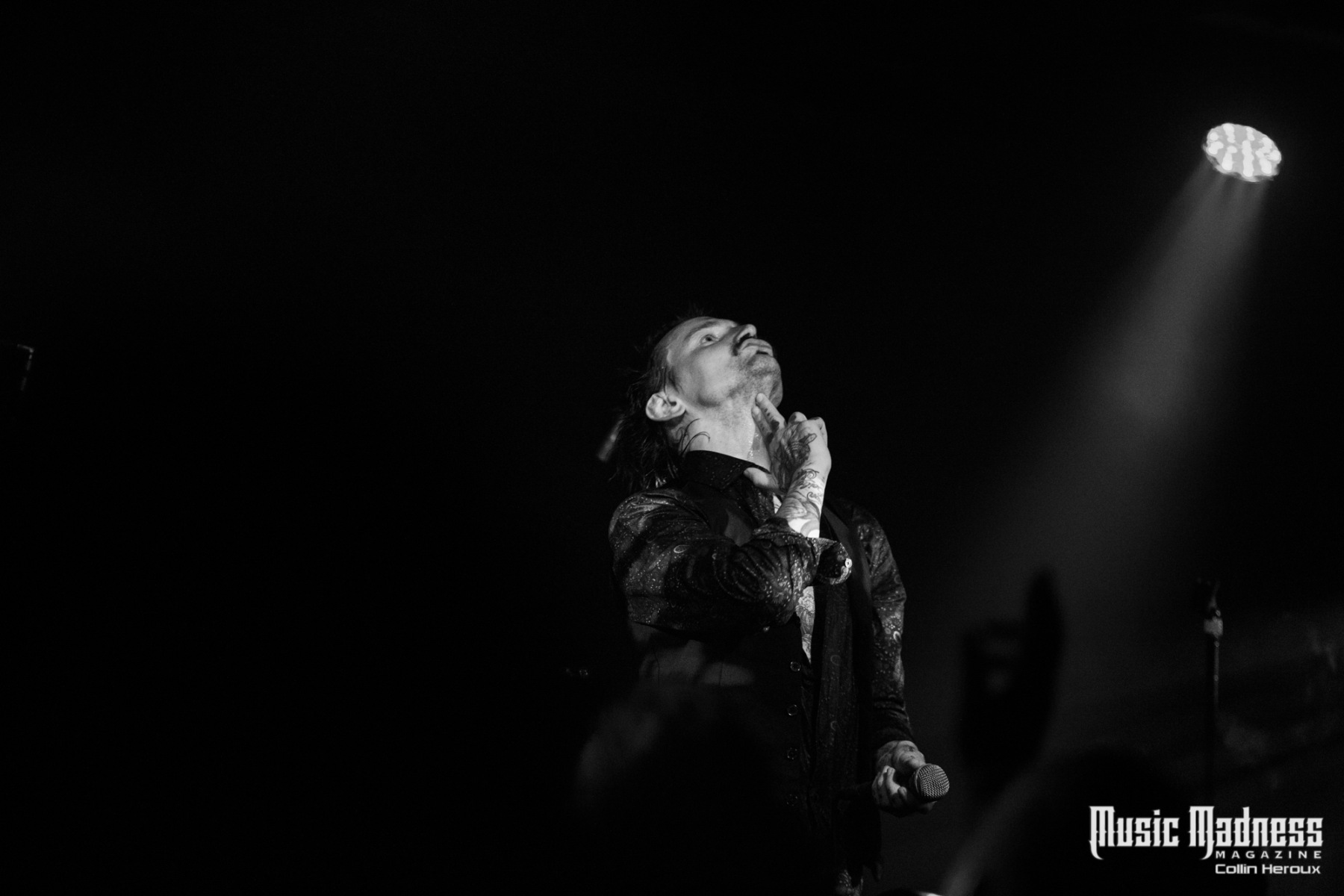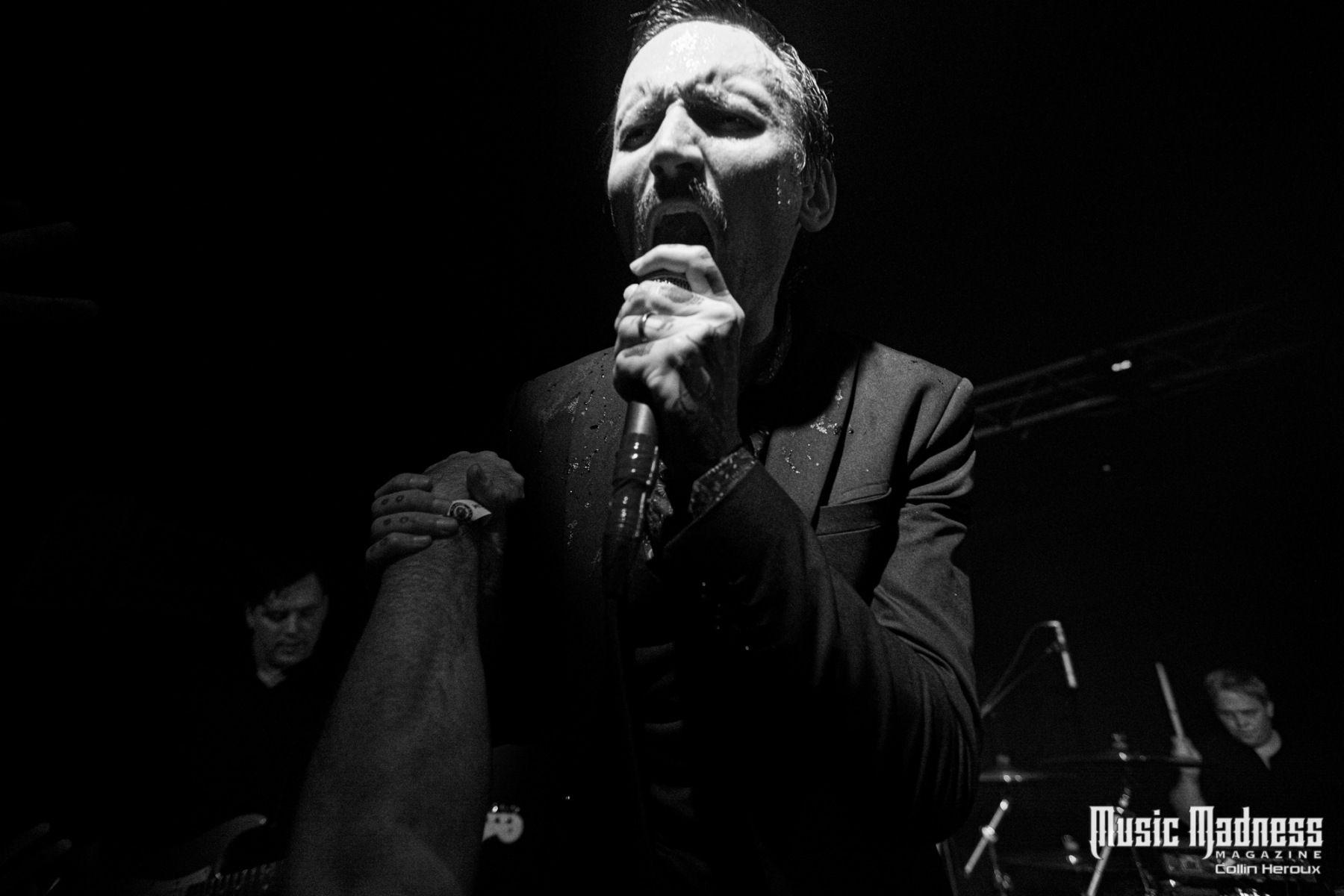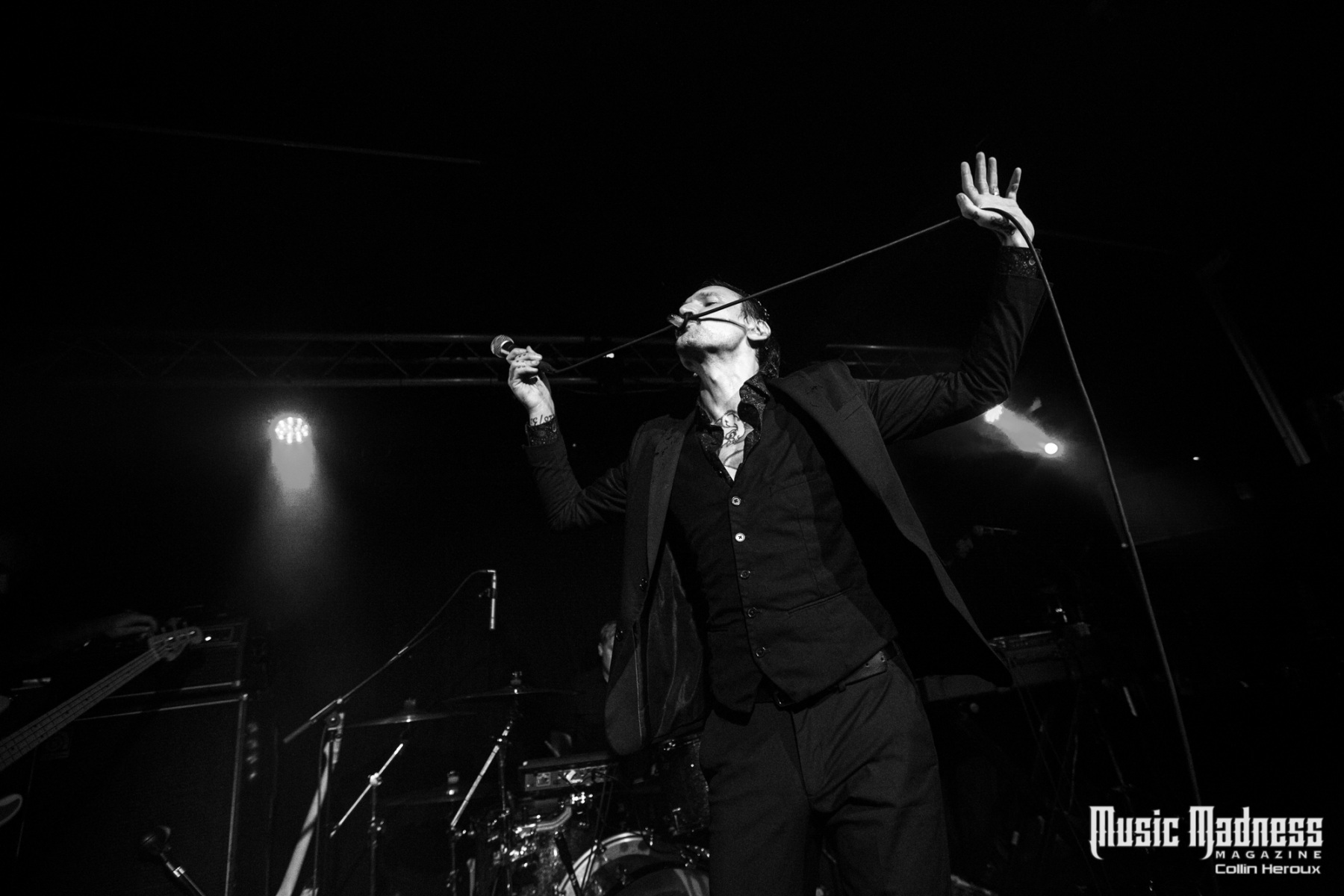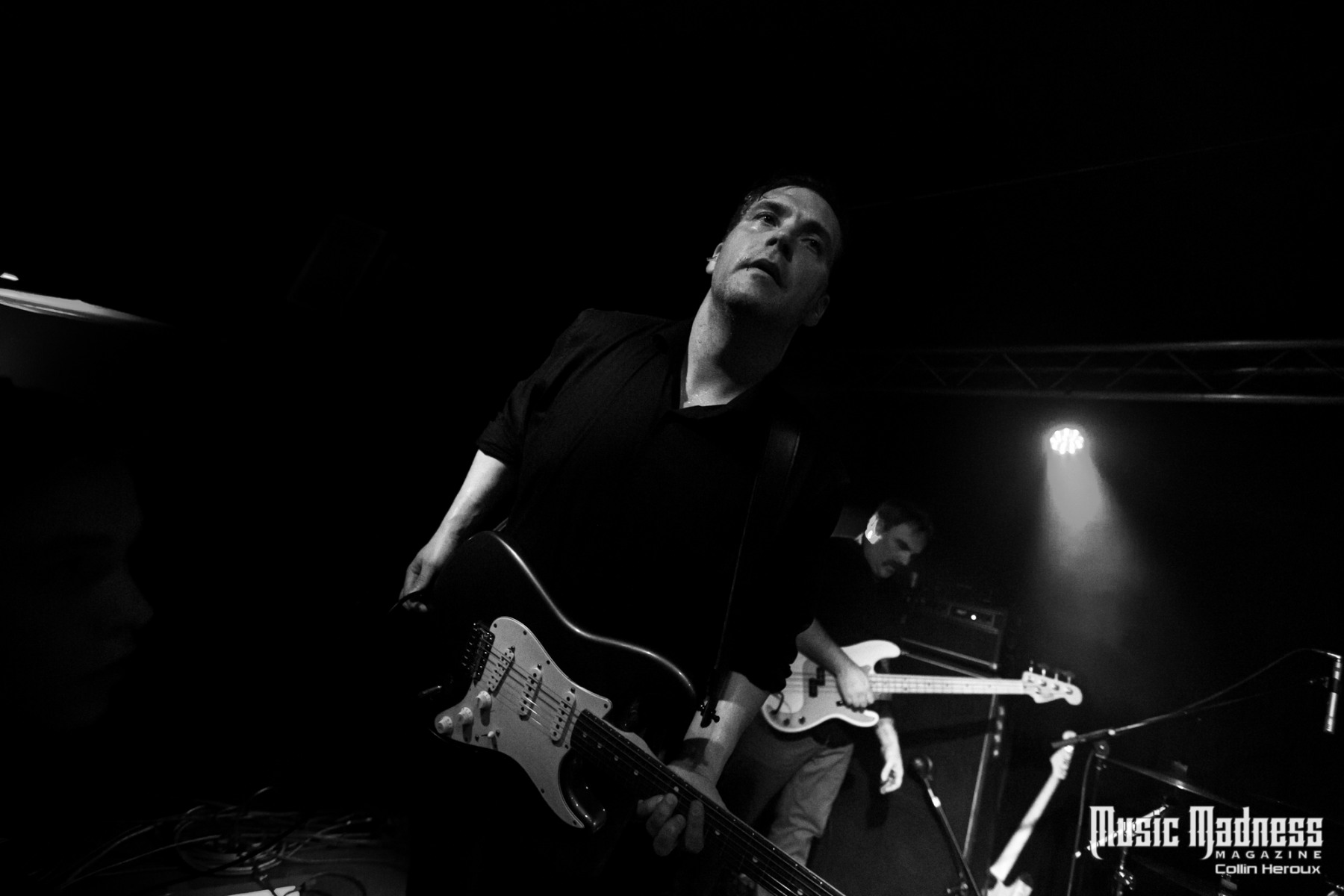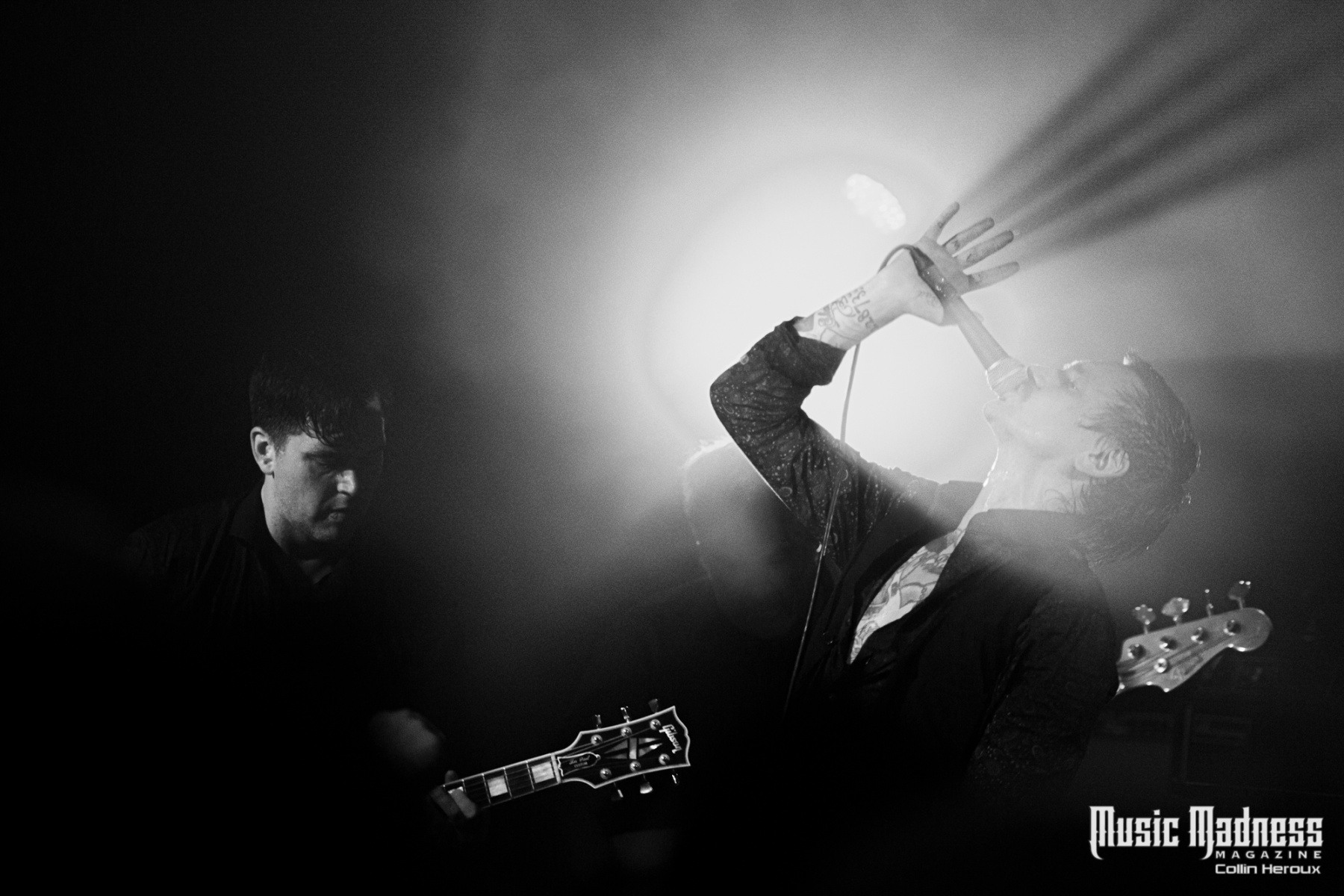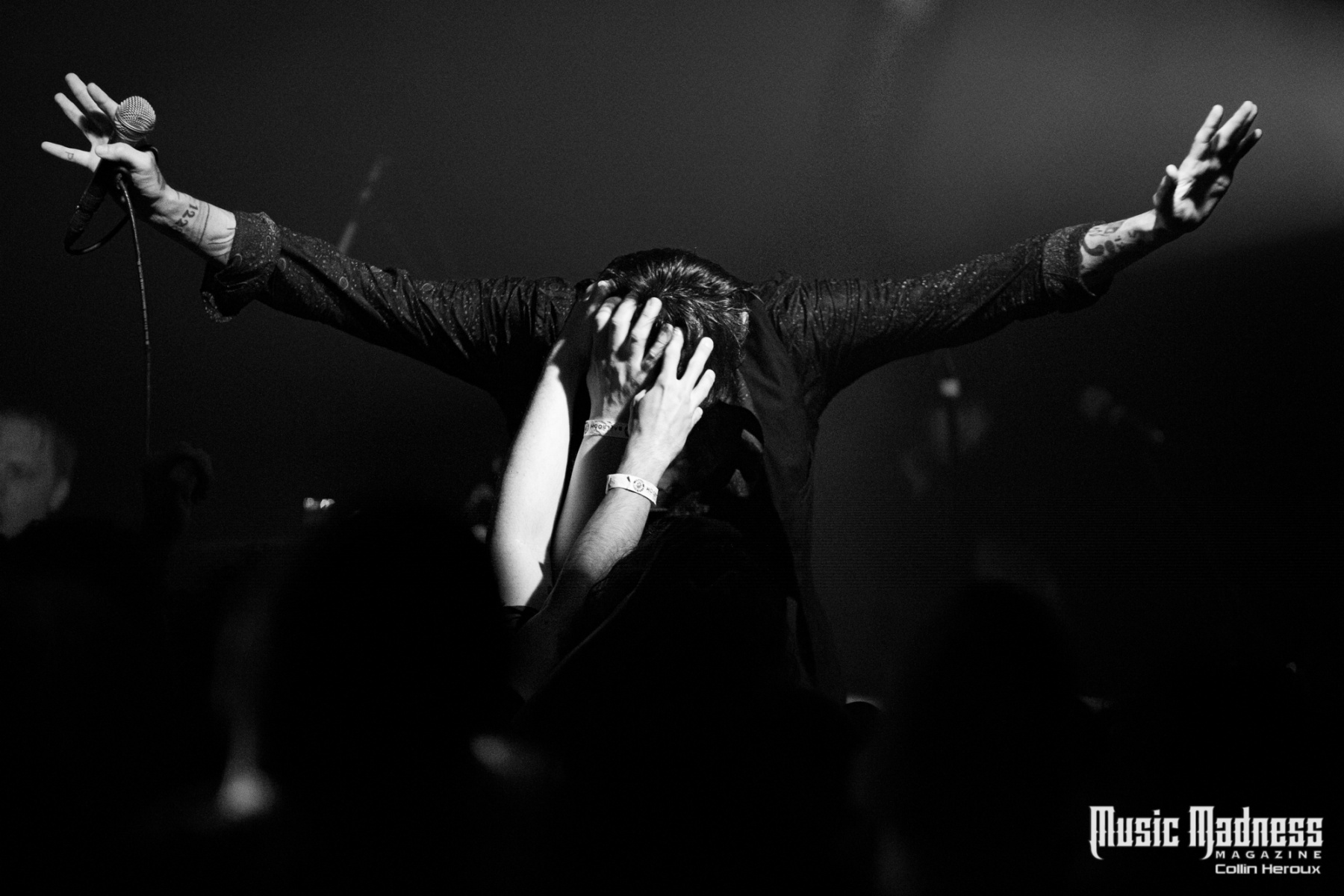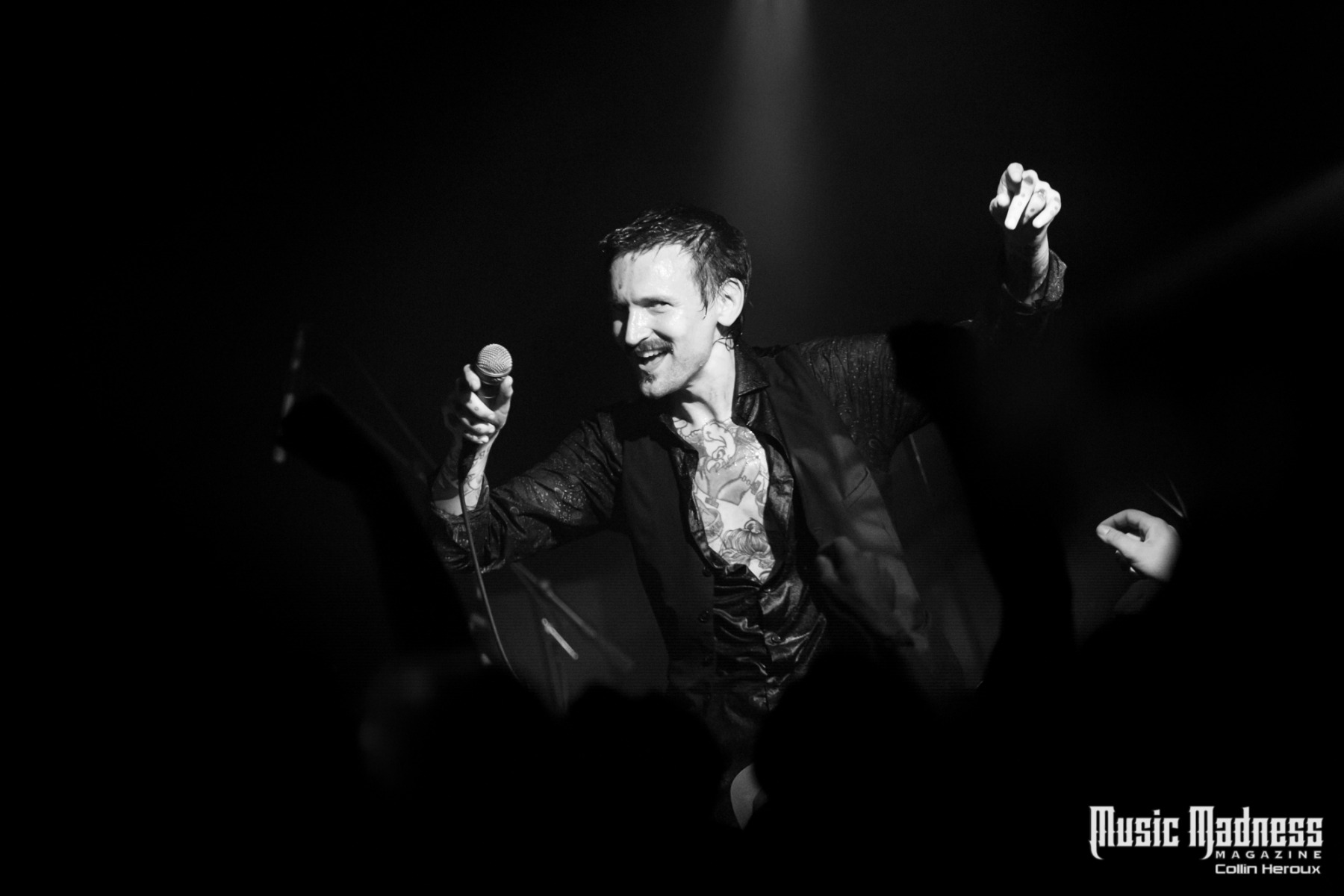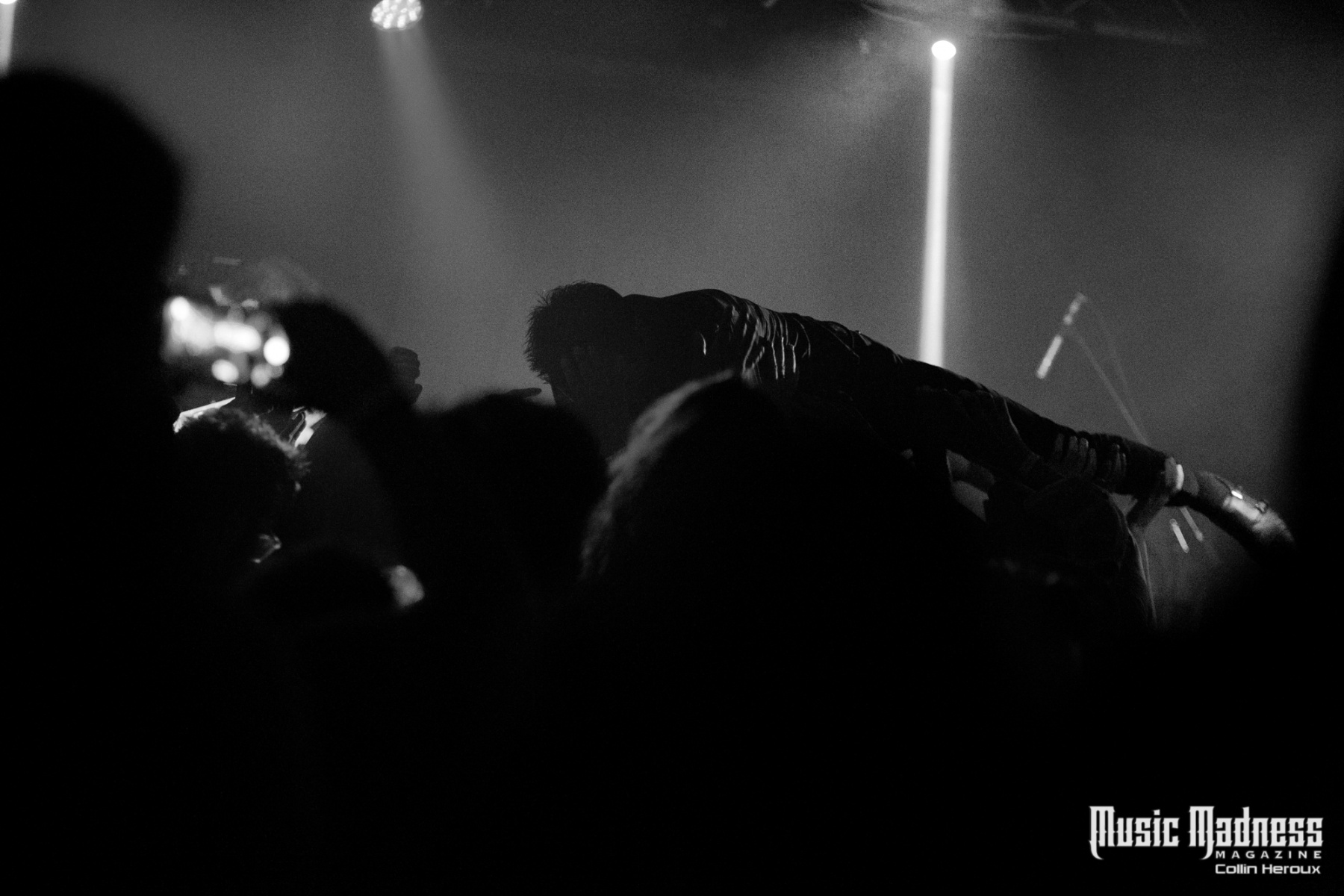
Alexis Marshall is dressed like the devil himself. In a jet-black, three-piece suit with a mustache and a modest cut of slicked-back hair, he radiates a magnetic and often maniacal energy that is perfectly suited to the music of his band: Daughters.
As you can read in our previous coverage, Daughters are riding high after the success of 2018’s You Won’t Get What You Want, a reemergence eight years in the making for the Rhode Island band, who created the album in the storied Machines With Magnets Studio that has spawned equally heavy and/or dark releases from bands like The Body, Ed Schrader’s Music Beat, and Marissa Nadler – as well as nearly all of Daughters’ discography.
In an Ipecac Records documentary about the making of the album, guitarist Nick Sadler has high praise for Machines with Magnets. “Machines is a good place to go if you want to have a good time, a cool recording, and… not have somebody tell you what your record needs to sound like,” he says, and truer words were never spoken. The record sounds completely unlike anything else in modern music. It has the driving force of what might fall under the typical umbrella of post-punk or noise rock, but also a seedy underbelly all its own, a proper unique world apart from anything else where these songs live. There’s distorted loops of electronics, surprisingly-bright keys, and guitar playing from Sadler, Gary J. Potter, and bassist Samuel Walker that defies classification and tests the limits of each member.
There’s something about Rhode Island that suits Daughters – perhaps it’s the brutally cold winters and sweltering summers; perhaps it’s the Lovecraftian influence that permeates Providence. Whatever it may be, there’s something just twisted enough about the nation’s smallest state that spawns fantastic darkness without snuffing it out. And that’s a fair description of YWGWYW as well, it being a record that builds on the string-bending insanity of the band’s previous self-titled record and infuses it with even more pummeling walls of noise and experiments like the slow groove of ‘Less Sex’ and the gothic pianos that score ‘Satan in the Wait’.
Crammed into a sold-out Space Ballroom on Father’s Day in Hamden, CT, Daughters pick up right where they left off on the first leg of their tour. The difference in the crowd’s demeanor between the last moment of silence and the very first note of ‘The Reason They Hate Me’ is as stark as can be, and immediately the front row is compressed against the low stage in a throng of oscillating human bodies, like someone lit a fire in everyone’s head simultaneously – dozens of lost souls driven to a manageable degree of collective madness.
Despite the relatively small size of the venue, eager concertgoers find their way onto the stage briefly and back out into the crowd, carried by a sea of hands. Marshall joins them several times, most notably during ‘Ocean Song’ as he sings its closing refrain held up in the middle of the room by people singing back at him.
Marshall and the crowd, as ever, feed off of each other. Even with feet on terra firma, the man is rarely still, bouncing around on the tips of his dress shoes and twisting and writhing as if fighting the wind. He’s exceedingly physical, reminiscent a bit of Nick Cave in that respect, leaning into the crowd and letting them paw him, grabbing their wrists as they reach toward the pointed shoulders of his jacket, and dousing his lithe frame with water multiple times – all without ever missing a beat. The physical component of his performances cast him practically as a religious figure, bonding audience and band together as he becomes a vessel where those two meet in the midst of his words. He’s given to the kind of fervor that finds him placing his microphone fully into his mouth, and at one point spits an oozing glob of saliva through a knot that formed in the mic cord as he whirled it around the stage.
It’s not just Marshall who undulates, either. Stage-right, Potter and Walker’s headstocks move around them as if they’re taming wild animal. Drummer Jon Syverson, meanwhile, maintains unflinching focus even as he creates the primal underpinnings of the songs. Syverson’s performance is particularly haunting on more spacious tracks like ‘Daughter’, where he’s the sole constant in a sonic world that’s constantly changing and flaring up around him.
To listen to YWGWYW through one’s headphones in the dead of night is a harrowing and elating experience at the same time, like a true haunted house, driven by real madness, not gimmicks. In bringing these songs to a live setting, the band somehow ups the ante even further. Every refrain flies out into the air with unparalleled intensity, and arguably the best way to experience a show of this magnitude is to simply give oneself up to the music, the crowd, the lyrics – to the churning earth beneath one’s feet.
Review and photos by Collin Heroux


